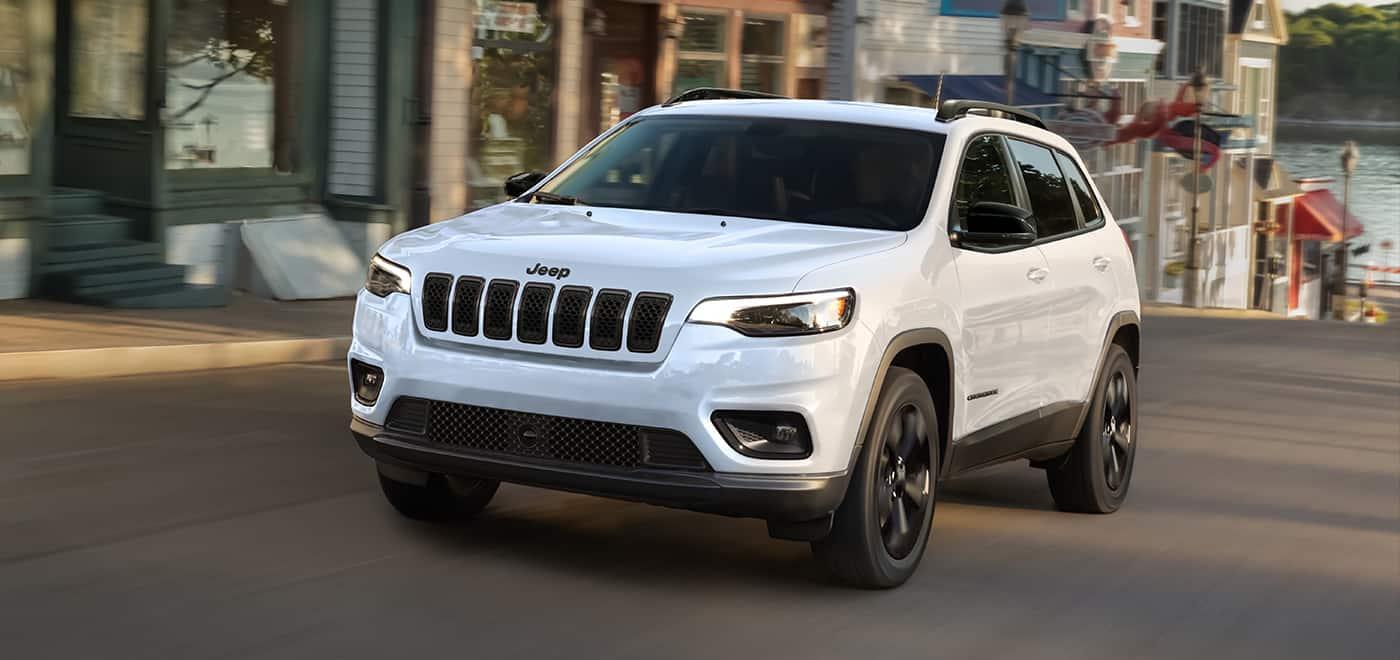How Long Will A Jeep Cherokee Last
While some vehicles come and go like passing fads, the Jeep Cherokee stands as a testament to endurance and reliability in the ever-evolving automotive world. But just how long can this iconic SUV stand the test of time? Join us as we delve into the factors that can influence the longevity of a Jeep Cherokee, from maintenance habits to road conditions, and everything in between. Whether you’re a proud owner or simply curious about the lifespan of this beloved vehicle, buckle up as we navigate through the intricate journey of how long a Jeep Cherokee can truly last.
Table of Contents
- Life Expectancy of a Jeep Cherokee: What to Expect
- Factors that Impact the Longevity of a Jeep Cherokee
- Maintenance Tips to Extend the Lifespan of Your Jeep Cherokee
- Common Issues that May Affect the Longevity of a Jeep Cherokee
- When to Consider Retiring Your Jeep Cherokee: Signs to Look Out For
- Frequently Asked Questions
- The Conclusion

Life Expectancy of a Jeep Cherokee: What to Expect
When it comes to the life expectancy of a Jeep Cherokee, there are several factors to consider. With proper maintenance and care, a Jeep Cherokee can last for many years.
One key factor in determining the longevity of a Jeep Cherokee is regular maintenance. This includes oil changes, tire rotations, and other routine tasks to keep the vehicle running smoothly.
Another important consideration is driving habits. How you drive can impact the lifespan of your Jeep Cherokee. Avoiding aggressive driving and off-roading can help extend the life of your vehicle.
Factors that Impact the Longevity of a Jeep Cherokee
can vary from maintenance practices to driving habits. Regular maintenance, such as oil changes, fluid checks, and tire rotations, can significantly prolong the life of your vehicle. By following the manufacturer’s recommended maintenance schedule, you can keep your Jeep Cherokee running smoothly for many years to come.
Another factor that can affect the longevity of a Jeep Cherokee is the type of terrain it is driven on. Rough off-road conditions can put extra stress on the vehicle’s suspension, brakes, and engine, leading to premature wear and tear. On the other hand, primarily driving on well-maintained roads can help preserve the longevity of your Jeep Cherokee.
Lastly, the way a Jeep Cherokee is driven can also impact its longevity. Aggressive driving, such as speeding, sudden acceleration, and hard braking, can put excessive strain on the vehicle’s components, leading to quicker wear and potential damage. By practicing safe and defensive driving habits, you can help extend the life of your Jeep Cherokee and enjoy many trouble-free miles on the road.
Maintenance Tips to Extend the Lifespan of Your Jeep Cherokee
Maintaining your Jeep Cherokee is key to ensuring its longevity on the road. By following these maintenance tips, you can help extend the lifespan of your vehicle:
- Regular Oil Changes: Ensure you schedule regular oil changes to keep your engine running smoothly.
- Check Fluid Levels: Monitor and top up all essential fluids, such as transmission fluid, brake fluid, and coolant.
- Tire Maintenance: Rotate your tires regularly and ensure they are properly inflated to improve fuel efficiency and handling.
Additionally, staying on top of routine maintenance tasks such as brake inspections, filter replacements, and belt checks can prevent larger issues down the line. By investing time and effort into caring for your Jeep Cherokee, you can enjoy many more years of reliable performance.
| Maintenance Task | Frequency |
|---|---|
| Oil Changes | Every 3,000-5,000 miles |
| Tire Rotation | Every 6,000-8,000 miles |
Common Issues that May Affect the Longevity of a Jeep Cherokee
One common issue that may affect the longevity of a Jeep Cherokee is rust and corrosion. Over time, exposure to salt, moisture, and other environmental factors can cause the metal components of the vehicle to rust. This can weaken the structural integrity of the Jeep Cherokee and lead to costly repairs or even safety hazards. Regularly inspecting the undercarriage and body panels for signs of rust, and addressing any issues promptly, can help prolong the life of your Jeep Cherokee.
Another potential issue that could impact the longevity of a Jeep Cherokee is electrical problems. From faulty wiring to malfunctioning sensors, electrical issues can be frustrating to diagnose and repair. Regularly checking the vehicle’s electrical system, including the battery, alternator, and fuse box, can help prevent electrical problems from causing more significant issues down the road.
Lastly, a common issue that may affect the longevity of a Jeep Cherokee is suspension and steering problems. Worn-out shocks, struts, or tie rods can lead to a rough ride, reduced handling, and potential safety concerns. Regularly inspecting and maintaining the suspension and steering components of your Jeep Cherokee can help ensure a smoother driving experience and extend the lifespan of the vehicle.
When to Consider Retiring Your Jeep Cherokee: Signs to Look Out For
Some signs to look out for when deciding if it’s time to retire your Jeep Cherokee include:
- Constant breakdowns and costly repairs
- Rust and corrosion on the body and frame
- Decreased fuel efficiency and performance
- Unusual noises or vibrations while driving
- Difficulty passing emissions tests
If you notice several of these signs, it may be time to start thinking about retiring your Jeep Cherokee. While they are known for their durability and reliability, all vehicles have a lifespan. It’s important to consider the safety and efficiency of your vehicle as it ages.
Ultimately, the decision to retire your Jeep Cherokee will depend on your individual needs and preferences. Some owners may choose to keep their vehicle for sentimental reasons, while others prioritize safety and reliability. Whatever you decide, make sure to weigh the pros and cons carefully before making a final decision.
Frequently Asked Questions
Q: How long will a Jeep Cherokee last?
A: The longevity of a Jeep Cherokee depends on various factors such as maintenance, driving habits, and overall care.
Q: What are some common issues that may arise as a Jeep Cherokee ages?
A: Some common issues that may arise as a Jeep Cherokee ages include engine and transmission problems, suspension issues, and electrical issues.
Q: How can I prolong the lifespan of my Jeep Cherokee?
A: Regular maintenance, timely repairs, and following the manufacturer’s recommended service schedule can help prolong the lifespan of your Jeep Cherokee.
Q: Is it worth investing in an older Jeep Cherokee or should I opt for a newer model?
A: It ultimately depends on your budget, preferences, and needs. Older Jeep Cherokees may require more maintenance and repairs, whereas newer models may come with updated features and technologies.
Q: Are there any specific models or years of the Jeep Cherokee that are known for their longevity?
A: Some Jeep Cherokee models, such as the XJ (1984-2001), are known for their durability and longevity. However, the longevity of any vehicle ultimately depends on how well it is maintained and cared for.
Q: What are some signs that indicate my Jeep Cherokee may be nearing the end of its lifespan?
A: Some signs that may indicate your Jeep Cherokee is nearing the end of its lifespan include frequent breakdowns, significant rust or corrosion, and major mechanical issues that are costly to repair.
The Conclusion
the lifespan of a Jeep Cherokee ultimately depends on how well it is maintained and cared for by its owner. With proper upkeep and regular maintenance, a Jeep Cherokee has the potential to last for many years and provide reliable transportation for its driver. So, if you’re looking for a durable and long-lasting vehicle, the Jeep Cherokee may just be the perfect choice for you. Drive on and enjoy the adventures that lie ahead!
